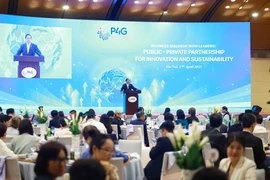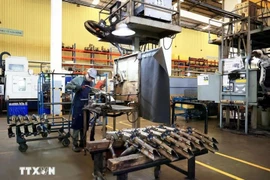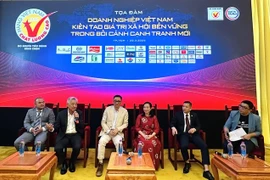Hanoi (VNS/VNA) - In an increasingly volatile global economy, business connections have become essential for companies looking to grow and remain competitive, according to experts at the 2025 Business Forum held in Hanoi late last week.
They also emphasised that fostering stronger connections across industries and supply chains can help Vietnamese enterprises navigate uncertainties and seize new opportunities.
At the forum, held by the Vietnam Chamber of Commerce and Industry (VCCI), Tran Thi Hong Minh, Director of the Institute for Policy and Strategy Studies under the Party Central Committee’s Commission for Policies and Strategies, said: "In a world of rapid and complex changes, linkages help businesses diversify markets, connect with new models and better use resources. They are also critical in mitigating risks and enhancing overall competitiveness.”
Vietnam’s deeper integration into the global economy makes such linkages even more critical. While some large Vietnamese firms have successfully entered regional and global value chains, Minh pointed out that the country still lacks large-scale enterprises capable of leading and connecting with smaller domestic firms to build internationally competitive industries.
Nguyen Trung Khanh, Director of the Vietnam National Authority of Tourism, echoed these concerns, noting how global disruptions, including trade protectionism, supply chain fragmentation, inflation and geopolitical instability - have made it imperative for businesses to work more collaboratively.
"Businesses, especially in sectors like tourism, must proactively build and strengthen partnerships across service chains to adapt and thrive," Khanh emphasised.
Despite their recognised value, linkages among Vietnamese businesses remain weak.
According to Minh, this is largely due to the limited capacity of small and medium-sized enterprises (SMEs) and gaps in institutional and policy frameworks.
“Current policies do not sufficiently support SMEs in improving their operations or accessing capital, thereby limiting their ability to participate in domestic and international supply chains,” she said.
Minh recommended developing more supportive policies - such as tax incentives, improved credit access and land-use support - for enterprises actively participating in business linkages.
Vietnam needs to have foreign investment policies that encourage collaboration with local suppliers, along with the development of free trade zones and industry clusters that foster connected growth.
Minh also emphasised the importance of nurturing large-scale private enterprises to act as leaders and coordinators, guiding smaller companies and helping them gain a foothold in global markets.
Meanwhile, Mac Quoc Anh, Vice Chairman and General Secretary of the Hanoi Association of Small and Medium Enterprises, said SMEs make up over 97% of Vietnam’s businesses, and contribute more than 40% of GDP and over 50% of the total employment.
“Supporting SMEs cannot rely solely on their individual efforts,” said Anh.
“It requires cooperation from government agencies, financial institutions and industry associations.”
He called for comprehensive, long-term policies to support business growth, along with ongoing improvements to the business environment.
At the same time, he urged the business community to embrace digital transformation and innovative practices to improve governance and operational efficiency.
Phan Duc Hieu, member of the 15th National Assembly's Committee for Economic and Financial Affairs, stressed the role of institutional reform in enabling business success.
He argued that improving the quality of legislation and its enforcement is key to creating a more supportive and predictable environment for enterprise development./.

See more
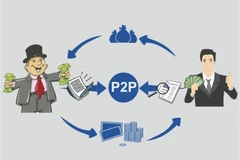
Vietnamese gov’t approves two-year trial of P2P lending
Under the pilot, only P2P lending companies licensed by the State Bank of Vietnam (SBV) will be allowed to operate. Foreign banks are excluded from participation. While credit institutions and fintech firms may join the trial, participation does not guarantee future compliance with business or investment regulations once formal laws are enacted.
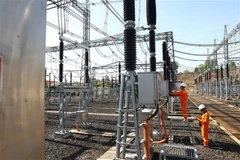
Vietnam eyes 18 billion USD a year for power plan through 2035
Vietnam targets being among the top four ASEAN countries for electricity reliability and in the top three for ease of electricity access.
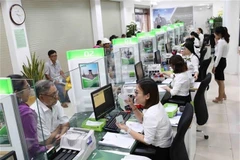
Corporate profits soar in Q1 2025, led by banking sector
According to statistics from Yuanta, market-wide revenue and post-tax profit rose by approximately 20.1% and 50.8% year-on-year, respectively, buoyed by the low comparative base of 2024.
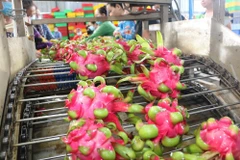
Overseas Vietnamese help Vietnamese products go global
In 2016, approximately 4.5 million Vietnamese were residing in 109 countries and territories. Today, the figures have risen to over 6 million and more than 130, respectively. Once focused on small-scale trade, many OV entrepreneurs now own major retail centres and operate extensive wholesale networks, boosting the availability of Vietnamese products abroad.
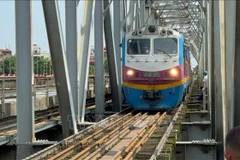
PM orders fast-track construction of Lao Cai - Hanoi - Hai Phong railway
The Minister of Construction was asked to work closely with local authorities to hasten land clearance, compensation, resettlement, site surveys, and the drafting of a feasibility study, which must be completed by June 2025, setting the stage for the project's groundbreaking on December 19, 2025.
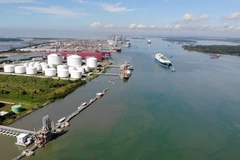
Vietnam cuts LNG import tariff to boost clean energy transition
The Vietnamese Government has reduced the preferential import tariff on liquefied natural gas (LNG) from 5% to 2% under Decree No. 73/2025/ND-CP, issued on March 31. The move marks a key step in accelerating the country’s shift from fossil fuels to cleaner energy.
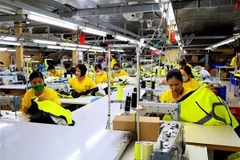
Vietnam’s labour market modernised toward deeper global integration
Through targeted measures, including more job-matching programmes, employment fairs, and job creation loans, the Government has effectively connected provinces rich in human resources with key economic hubs.
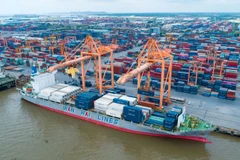
Vietnam to become second-largest economy in Southeast Asia by 2036: CEBR
Between 2021 and 2036, CEBR forecasts that the position of Vietnam in the World Economic League Table will improve considerably, with its ranking rising from 41st to 20th by 2036.
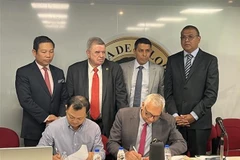
Vietnam hopes for stronger economic ties with Venezuela: ambassador
Current trade relations between Vietnam and Venezuela remain modest and are not yet commensurate with their potential, strengths, or political relationship, said Vietnamese Ambassador to Venezuela Vu Trung My.

HCM City moves closer to establishing int’l financial centre
The establishment of an international financial centre is expected to serve as a catalyst to accelerate the city’s transformation and position it for breakthrough growth in the coming years.
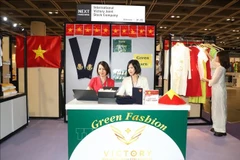
Vietnam brings breath of sustainability to Hong Kong international fashion fair
Running from April 27 to 30, the Fashion InStyle sees the participation of sustainable and eco-conscious suppliers from 19 countries and territories.
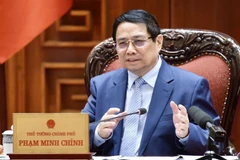
PM urges proactive engagement with US on trade talks
Trade negotiations with the US must be calm, consistent, and flexible, aiming to protect national sovereignty, security, and interests, while upholding international commitments and pursuing “balanced interests, shared risks," said Prime Minister Pham Minh Chinh.
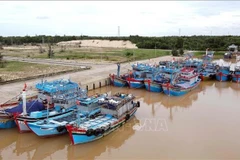
Vietnam races against time to have EC’s "yellow card" lifted before Sept. 15
The Ministry of Agriculture and Environment particularly focused on resolving all EC concerns before September 15, the deadline for submitting a progress report to the commission, as well as ensuring thorough preparations for the fifth inspection so as to secure the removal of the “yellow card” warning.
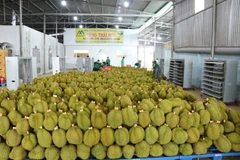
Vietnam keen on bolstering economic ties with China's Greater Bay Area
Vietnam places great importance on advancing cooperation with the Greater Bay Area, particularly in the sectors based on Fourth Industrial Revolution technologies, said Deputy Minister of Finance Nguyen Duc Tam.
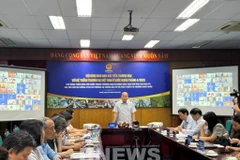
Vietnam’s trade counsellors believe in opportunities amid tariff challenges
The business community should strengthen resilience and diversify supply chains to reduce dependence on a single market for raw materials and intermediate goods, heard a hybrid conference held on April 28.
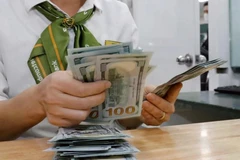
Reference exchange rate down April 29
The State Bank of Vietnam set the daily reference exchange rate for the US dollar at 24,960 VND/USD on April 29, down 4 VND from April 28.
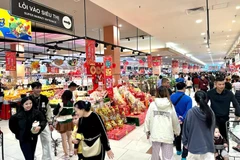
Vietnam stimulates domestic consumption, diversifies export markets
Gaining a firm foothold in the domestic market of more than 100 million people is critically important to businesses as the domestic market, which, if properly leveraged, could help offset the decline in export orders.

Businesses urged to promote innovation in brand building
Amid global competition, branding is not just a marketing tool but also becomes a strategic factor that determines the position of enterprises and the national competitiveness.

Investment in AI in Vietnam increases eightfold
Vietnam is entering a new phase of growth, where innovation, science, and technology are at the forefront of shaping its future. From being an emerging market, Vietnam has now risen to become a strategic destination for technology investment in Southeast Asia, driven by the aspirations of the entrepreneurial community and strategic guidance from the government
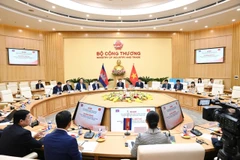
Vietnam, Cambodia seek ways to bolster economic, trade ties
Vietnam and Cambodia inked an agreement on promoting bilateral trade for the 2025–2026 period, which provides preferential tariffs for many competitive goods from each side – much more favourable than those under the ASEAN Trade in Goods Agreement (ATIGA).
